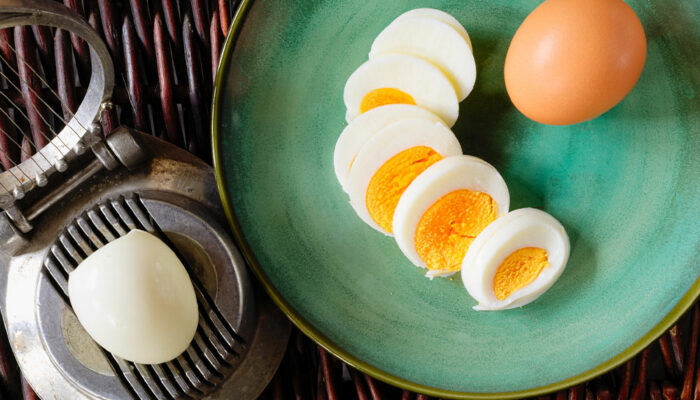14 healthy snack ideas for those with diabetes

To manage diabetes, it’s crucial to pick healthy snacks that don’t cause spikes in blood sugar and reduce insulin levels. In a market filled with ultra-processed snacks, this can often be difficult. For the best results, it is important to pick foods rich in fiber, protein, vitamins, minerals, antioxidants, and healthy fats. This article will discuss 14 nutritious snack ideas that are perfect for individuals with diabetes and can help manage the condition better.
1. Hard-boiled eggs
These are a rich source of protein. As a result, they promote fullness, reduce calorie intake, and restrict glycemic spikes in the blood, making them a great snack option for diabetics. According to a study, consuming two hard-boiled eggs daily may help reduce fasting blood sugar levels and lower hemoglobin A1c levels.
2. Popcorn
This whole-grain snack is rich in fiber and has a low-calorie content, making it a great movie snack, even for those with diabetes. One cup of air-popped popcorn contains only 31 calories. It is important to note that store-brought varieties of popcorn can be loaded with salt and fat, so it is safer to make them at home using an air popper.
3. Almonds
Almonds are a convenient snack on the go. They contain over 15 vitamins and minerals, such as manganese, magnesium, and riboflavin. Some studies suggest that almonds may help reduce insulin and long-term blood sugar levels to help stabilize blood sugar.
4. Chia seed pudding
Embrace the latest food trends to find a healthy snack option for diabetics. Make chia seed pudding by mixing milk with chia seeds and letting it sit to achieve a pudding-like consistency. This is a great way to stay full, stabilize blood sugar, and lower triglyceride levels, as chia seeds are a rich source of protein, fiber, and omega-3 fatty acids.
5. Yogurt with berries
Yogurt and berries are a delicious and healthy snack for those with diabetes. This food option combines the antioxidant power of berries with the probiotic strength of yogurt. Berries are also high in fiber, which can help slow digestion and reduce glycemic spikes. However, one must avoid yogurt varieties with added sugars. Instead, opt for Greek yogurt with live bacterial cultures.
6. Hummus
Hummus is a scrumptious spread or dip made with chickpeas. Hummus contains proteins, fat, fiber, vitamins, and minerals, helping control blood sugar levels. It can be paired with fresh vegetables, such as cucumbers or celery, to make a filling snack option for diabetics.
7. Avocado
Avocados are the rage these days, and there is a healthy reason why! They are a great source of fiber and monounsaturated fatty acids, which can help regulate blood sugar levels, making them an ideal snack choice for people with diabetes. Mash some avocado and turn it into guacamole, slice it, or blend it into a green smoothie for a creamy beverage. However, one must limit their intake to one-fourth or half an avocado since they tend to be calorie-dense.
8. Peanut butter and sliced apples
Slice a medium apple and have it with two tablespoons of natural, unsweetened peanut butter for a tasty, diabetes-friendly snack. Apples are a rich source of fiber, potassium, and vitamins B and C, while peanut butter contains vitamin E and magnesium, which can help lower blood sugar levels. Research also suggests that the polyphenol antioxidants in apples can help protect pancreatic cells from damage that may worsen diabetes.
9. Roasted chickpeas
Chickpeas or garbanzo beans (used to make hummus) can also be roasted for a delicious, crunchy snack for those with diabetes. Since they are a great source of protein and fiber, they may help manage diabetes better by reducing the risk of blood sugar spikes.
10. Cheese and whole grain crackers
Who doesn’t love a cheese board? To make it diabetes-friendly, switch regular crackers for the whole grain variety. To add a touch of sweetness, serve cheese and crackers with a few antioxidant-rich berries on the side.
11. Tuna salad
A regular can of tuna contains 20 grams of protein and no carbohydrates, making it a great snack for those with diabetes. Turn this omega-3-rich fish into a flavorful salad by combining it with celery, onions, mayonnaise, and seasoning to taste.
12. Black bean salad
Black beans are a rich source of fiber and protein, which can help prevent glycemic spikes and lower insulin levels. Combine them with onions, peppers, and other veggies of choice with a vinaigrette dressing to make a delectable salad.
13. Trail mix
Need to spend a lot of time out and about? Carry this easy-to-grab snack made with nuts, seeds, and dried fruits to stay satiated throughout. A one-ounce serving of trail mix provides four grams of protein along with healthy vitamins and minerals, which can help reduce blood sugar levels. However, it is advisable to avoid adding too many dried fruits to the trail mix, as they tend to have high sugar levels and can cause a spike in insulin levels.
14. Homemade protein bars
As the name suggests, protein bars are an excellent source of protein. However, the store-bought varieties can be rich in added sugar, so it is safer to make them at home. Make a simple protein bar with peanut butter, whey protein, and oat flour. Toss in some crushed nuts to add some crunch as well.
Other healthy snack options for diabetics include kale chips, beef sticks, turkey roll-ups, cottage cheese, edamame, and pumpkin seeds.





